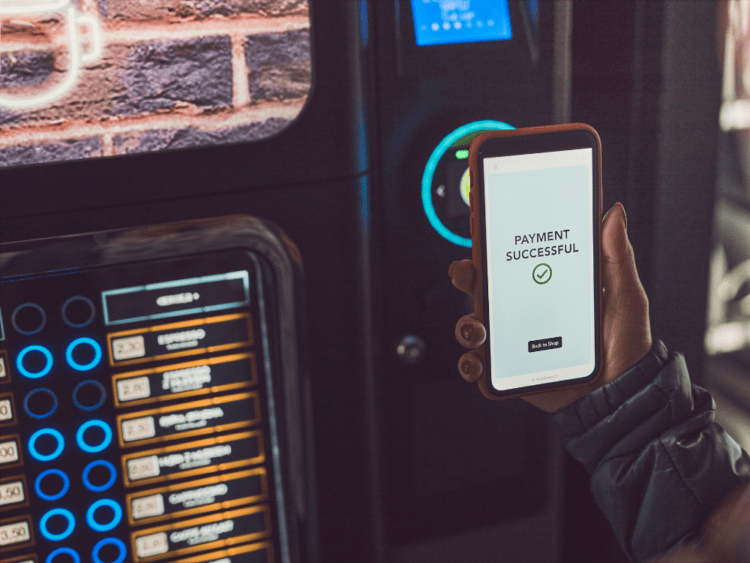The Role of Vending Machines in Revolutionising Healthcare Access
by a.huynh |
Vending machines have long been associated with the convenience of grabbing a quick snack or a refreshing drink. But in recent years, this staple of modern life has ventured into new territories—healthcare. What if picking up essential medical supplies or prescriptions could be as easy as buying a drink? This blog explores the emerging role of vending machines in healthcare, their types, benefits, challenges, and how they could reshape the future of healthcare access.
A Brief History Of Vending Machines
Vending machines were first invented in the 1st century AD to dispense holy water in ancient Egypt, but they have come a long way. The modern version appeared in the late 19th century, serving simple items like postcards and gum. Their role remained static for decades—providing quick, convenient access to snacks and drinks.
However, as technology advanced, so did the potential of these machines. Vending machines diversify across industries today, dispensing everything from electronics to PPE. Their transition into healthcare is one of the latest—and potentially most impactful—evolutions yet.
The Shift To Healthcare Vending Machines
Healthcare and technology often go hand in hand, and vending machines are no exception. The shift into healthcare is driven by growing consumer demand for instant, accessible solutions. Imagine picking up your asthma inhaler or a first-aid kit from a high-tech vending machine instead of waiting in a lengthy queue at the pharmacy—it’s not just a dream but increasingly a reality.
These healthcare vending machines aren’t limited to dispensing over-the-counter items. They are beginning to offer services like prescription medications and automated diagnostic kits. This shift aims to bridge accessibility gaps, particularly in underserved areas such as rural and remote communities or for people with mobility restrictions.
Types Of Healthcare Vending Machines
Healthcare vending machines come in various forms, each catering to specific needs. Here’s a closer look at some of the main types:
- Prescription Pick-Up Machines
These machines are revolutionising the way people access their medication. Customers can work with their healthcare providers to have prescriptions pre-loaded into a vending machine. With secure PINs or unique QR codes, patients can quickly and discreetly pick up their medications without needing a pharmacist.
- Medical Supplies Dispensers
Medical supplies vending machines, often installed in public places like schools, workplaces, airports, and gyms, provide instant access to essential items, from bandages and first-aid kits to thermometers and blood pressure monitors.
- Over-the-counter (OTC) Medication Machines
These machines make common OTC medications like paracetamol and antihistamines accessible 24/7, even beyond standard pharmacy hours.
- Diagnostic and Testing Kiosks
Automated kiosks allow users to purchase diagnostic kits for everything from pregnancy tests to COVID-19 testing kits. Some advanced machines even conduct tests on-site—such as measuring blood pressure or glucose levels—and provide immediate results.
- PPE and Hygiene Supply Machines
During the COVID-19 pandemic, vending machines dispelling masks, gloves, and sanitisers became widespread. While initially a response to the crisis, these machines remain useful for ongoing health and safety needs.
The Benefits Of Healthcare Vending Machines
Healthcare vending machines offer several advantages, making them a game-changer for patient care and accessibility.
- Improved Accessibility
Vending machines provide an invaluable service for individuals in remote areas or underserved by pharmacies and healthcare facilities. They help bridge gaps in accessibility, ensuring essential items and medications are within reach at any time.
- Convenience
No more waiting in long pharmacy queues or rushing to beat closing hours. With vending machines, healthcare access is immediate and available 24/7.
- Reduced Waiting Times
By taking over essential functions, such as dispensing medications or supplies, vending machines free up pharmacists and medical staff to focus on more critical tasks. This, in turn, reduces waiting times for patients.
- Privacy
Picking up sensitive items—like contraception or diagnostic kits—can be done discreetly without the need to engage in face-to-face conversations.
- Cost-Effective Solutions
Operating vending machines is generally more economical than setting up additional pharmacy branches, enabling cost savings to be passed on to patients.
Challenges And Solutions In Implementing Healthcare Vending Machines
Like any new technology, healthcare vending machines face challenges:
- Regulatory Barriers
Dispensing prescription medications via vending machines requires strict compliance with regulations to ensure prescriptions are verified securely. Advanced AI and authentication systems are being developed to tackle this.
- Security Concerns
Ensuring the safety of sensitive information, such as prescription data, is crucial. Machines now have advanced encryptions and authentication methods to safeguard users’ privacy and data.
- Limited Human Interaction
While machines excel at convenience, some patients benefit from human interaction and advice. Integrating vending services with telehealth consultations could bridge this gap.
- Maintenance and Downtime
Regular maintenance is vital to prevent breakdowns that could disrupt access. Monitoring systems using IoT (Internet of Things) can predict when machines need servicing, minimising downtime.
The Future Of Healthcare Vending Machines
Thanks to rapid technological advancements, the future of vending machines in healthcare is incredibly promising. Intelligent vending machines with artificial intelligence, IoT capabilities, and even robotic arms are already being developed. These machines will offer increasingly complex services, such as personalised medication dispensing based on patient history and dynamic diagnostic testing.
Additionally, as healthcare vending machines grow in popularity, partnerships between tech companies, healthcare providers, and regulatory bodies will become crucial in ensuring seamless and compliant integration. With the right innovations, these machines could become fixtures in medical hubs, rural communities, and urban centres worldwide.
Contact Us
At Tooling Intelligence, we offer a comprehensive range of point-of-use vending solutions for various industrial applications.
Contact Us Today





